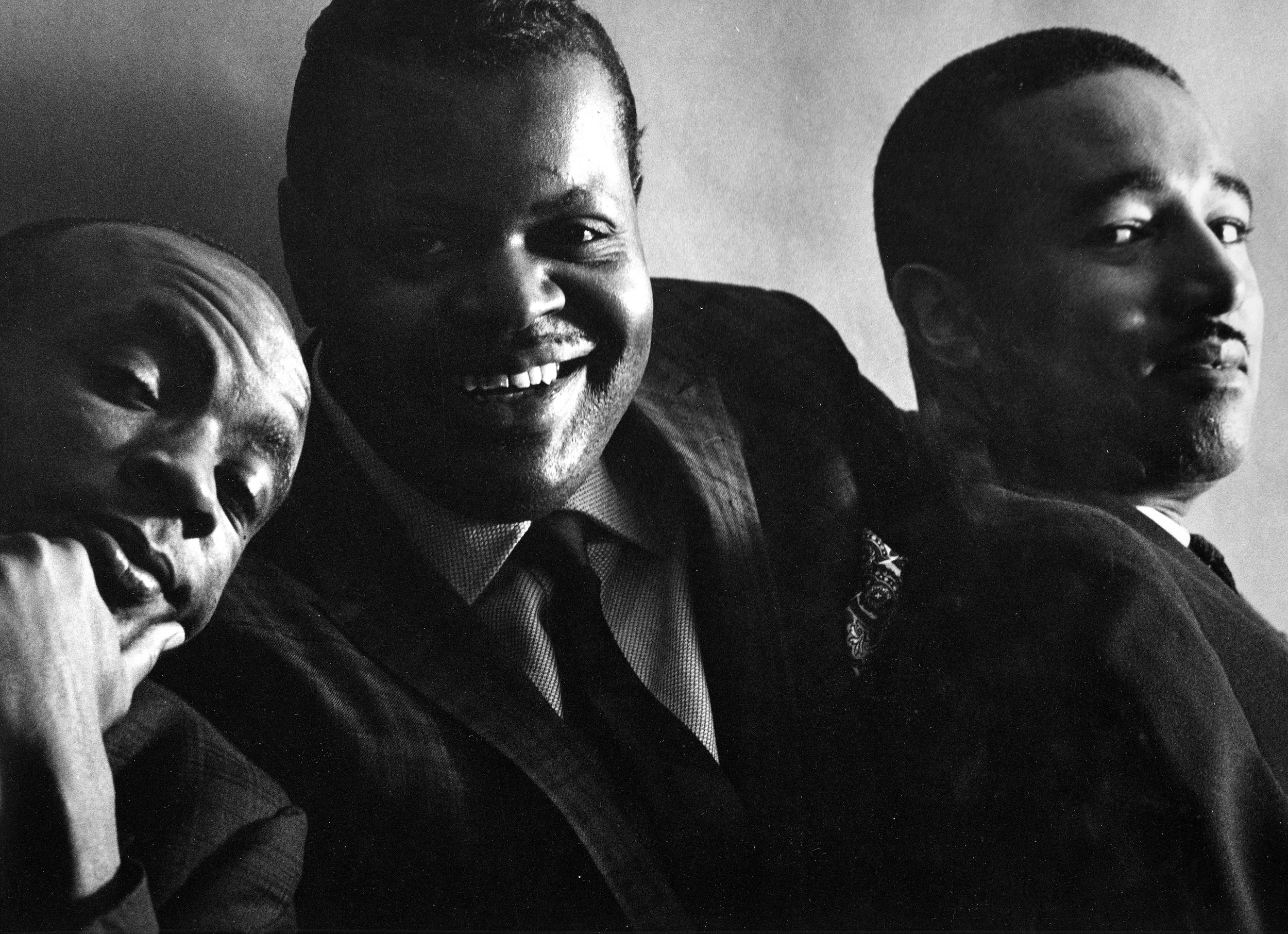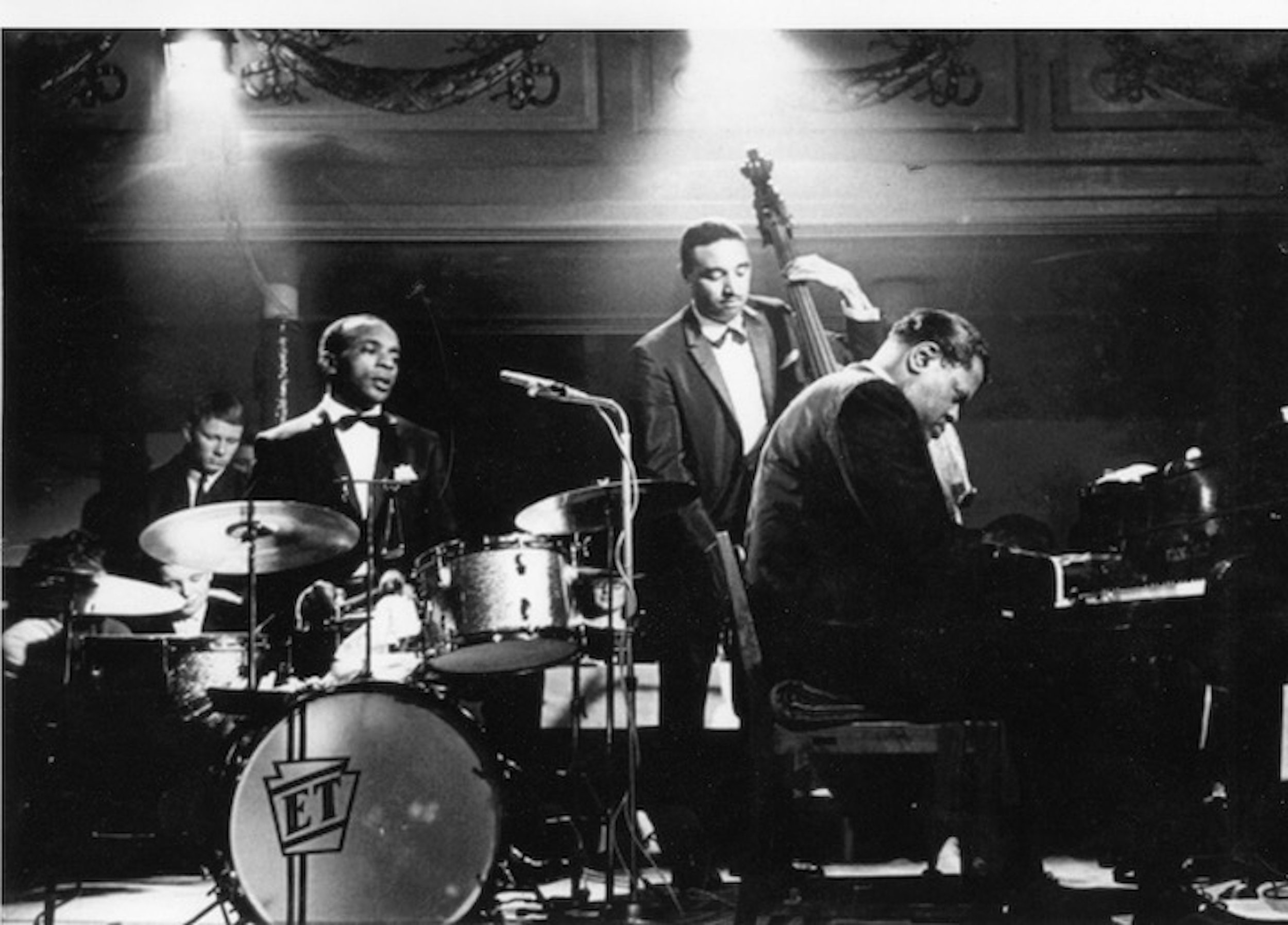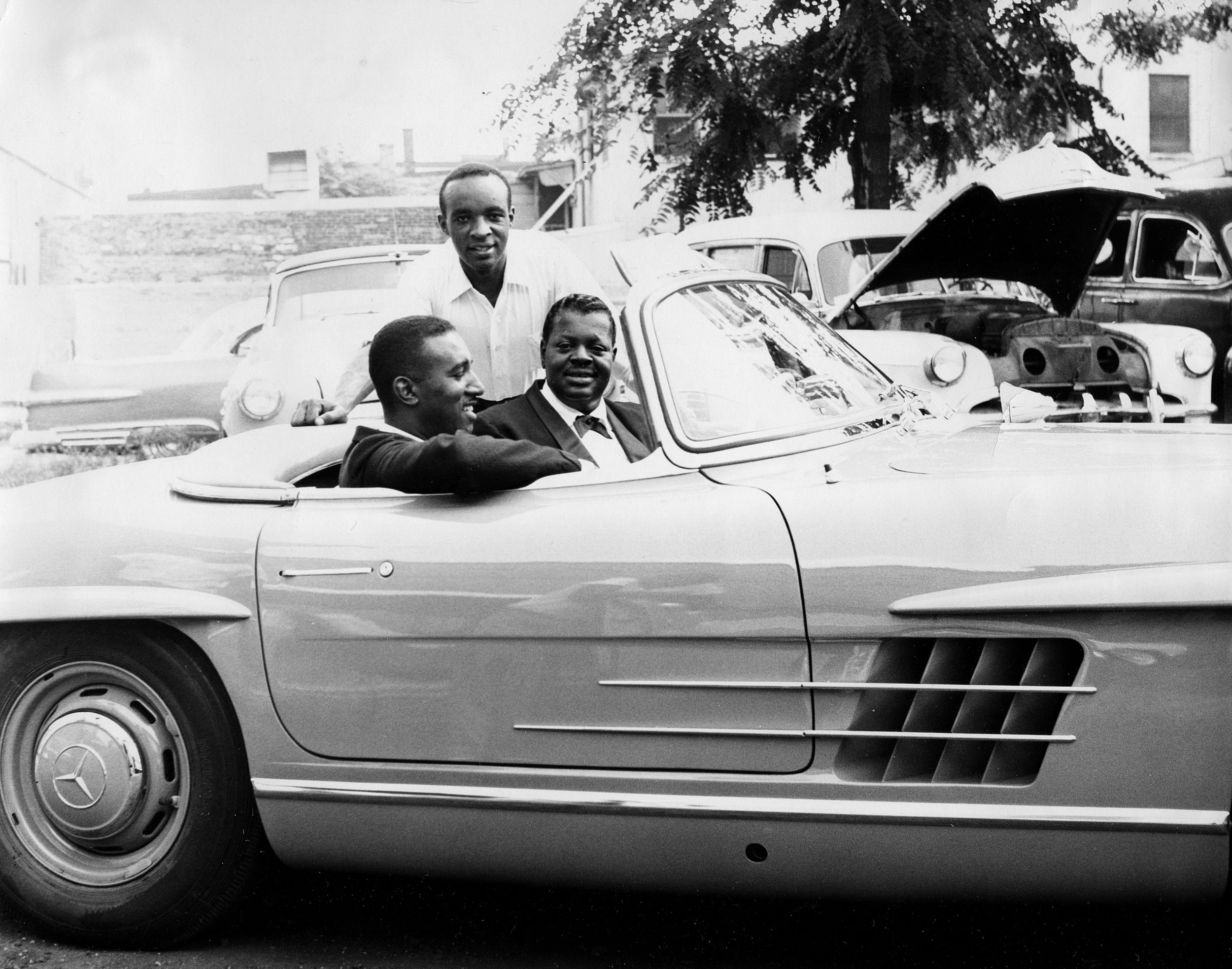Click Image to Download!
Imagine a time in which an artist at peak creativity, expressing music at its most profound, could perform at will as much as possible all over the world. Limited only by the willingness to perform and free from the economic stress of trying to find work, the ultimate focus is simply to make the music better and better with each new day.
Sounds like something Rod Serling might say in an introduction to an episode of The Twilight Zone, doesn’t it? But it isn’t fantasy…it’s just the basic reality that was the life of the immortal Oscar Peterson, one of the most beloved and prolific artists in the Jazz Pantheon. At a time when the world of jazz expression allowed for this lifestyle, another deeply important component was the ability for leaders to maintain a permanent ensemble, which fostered the development of synergistic telepathy that was so essential to the pursuit of transcendence that is jazz at its purest. Of course, the level achieved was totally dependent upon the artistry of the members, and the legendary Oscar Peterson Trio – with bassist Ray Brown and drummer Ed Thigpen – possessed artistry at its most consummate level. For more than six years, this assemblage continued to grow and perfect itself on virtually a nightly basis in all corners of the world.
While a performance schedule like that in itself would facilitate that superb level of aesthetic chemistry, that was not enough. Peterson wrote in his memoirs that after their performances, the three of them would “sip coffee until the staff left, and then rehearse from 4:30 to 7:00 (a.m.!). That might sound grueling; however, for us it had been integral to putting together what we felt was the best trio in jazz.” All of this toward the ultimate goal of having the three men “breathe as one.”
Another enormous asset of such a performance schedule is that a vibrant history was left behind in the numerous recordings done by venues all over the world on their own and with the assistance of local broadcasters and other facilitators of documentation. Kelly Peterson, Oscar’s wife and deeply committed keeper of his immortal legacy, has tirelessly unearthed these recordings, founding Two Lions Records and, in 2017, joining together with Mack Avenue Records to release the finest of her discoveries. The latest gem under this sterling partnership is their fourth collaboration, Con Alma: The Oscar Peterson Trio – Live in Lugano, 1964, recorded on May 26, 1964 at Teatro Apollo, Lugano, Switzerland – the final performance of an extended European tour just before the trio departed for Japan for another lengthy string of concerts.
As demonstrably evidenced by the thunderous applause throughout the performance, the trio was in top form for this set. In Peterson’s always excellent programming, the repertoire features two jazz classics, three items from the Great American Songbook and an original.
The album opens with one of the classics. While the introspective approach of the great Bill Evans is in seemingly stark contrast to the powerhouse virtuosity of Oscar, they find common ground in “Waltz for Debby.” Here Peterson brings a jaunty and robust sense of swing to one of Evans’ best-known works, which was a staple in Peterson’s vast repertoire. The other iconic jazz item is Dizzy Gillespie’s “Con Alma,” compellingly structured and executed in varying tempos, from gentle to Latin to hard swing built over bass ostinatos and Latin rhythms, shifting between crystalline delicacy and stormy romp.
The Songbook works take varied approaches that demonstrate the trio’s uniquely personal take on standards. The influence of the unparalleled Art Tatum is on full display on “My One and Only Love” as Peterson shows his brilliant virtuosity, but never sacrificing any of the emotional gravitas of this gorgeous Robert Mellon/Guy Wood masterpiece. The trio takes a breathtaking excursion on Rodgers & Hart’s “I Could Write a Book” with Peterson soaring over Brown’s vividly walking bass and Thigpen’s sizzling drums. Morphing seamlessly between delicate bluesy impressionism and romping swing, the trio offers a delightfully playful and compelling version of the Gershwins’ Porgy and Bess classic, “It Ain’t Necessarily So.”
Peterson’s original “Blues for My Landlady” is a vividly rolling blues propelled by a rumbling left hand at the very bottom of the keyboard. Powerfully swinging throughout, with sparkling bass and drum solos that spur the piece to its rollicking conclusion.
As always, the music is exhilarating, compelling, virtuosic and, of course, enormously enjoyable. The trio exhibits the essence of ensemble perfection in perfect harmony with the leader’s focus, with Brown and Thigpen fully owning the music without ever losing sight that Peterson is the captain of the buoyant ship. Brown’s playing is exquisite and his solos are marvelous and Thigpen’s playing supports, propels, enhances and scintillates throughout.
Six packed years of expression is a spectacular treasure (and Brown put in nearly another decade until the incredibly intense touring schedule just became too much), but it’s wonderful to know that there will be a continued flow of music at its highest levels coming from Kelly Peterson’s unceasing dedication, and the plans that are in motion for the centennial of his birth in 2025 will be a further welcome addition to what is one of the music’s most meaningful and powerful legacies.
About Oscar Peterson
Bestowed with the title of The Maharajah of the Keyboard by Duke Ellington, Oscar Peterson was the embodiment of the history of jazz piano. Recipient of numerous honors and awards (including eight Grammys) and the subject of various documentaries, Oscar recorded more than 200 albums under his own name and as “house pianist” for Verve and Pablo Records, and lent his empathetic and brilliant accompaniment to many of music’s most immortal legends on hundreds of others. One of the most revered and influential pianists even to this day, the upcoming centennial celebration in 2025 will only add new substance to one of the most enduring and important legacies in the history of the glorious art of jazz.








